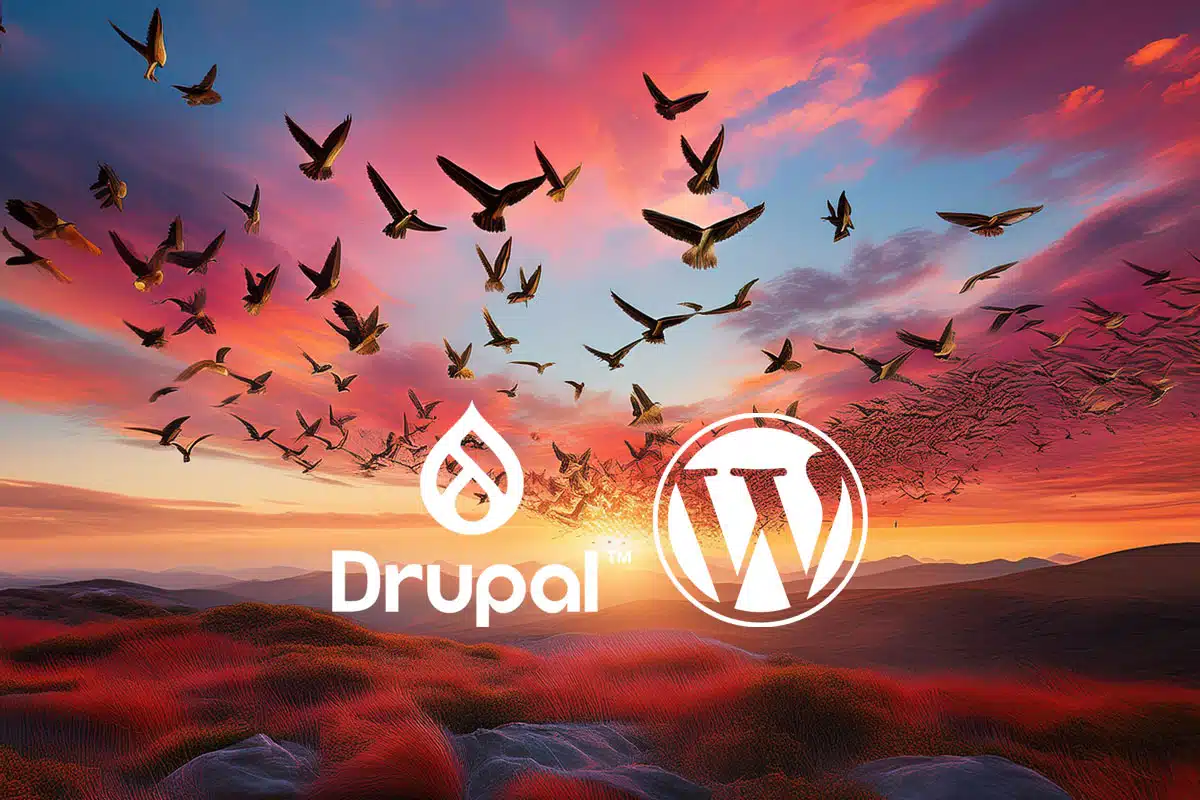In the ever-evolving world of content management systems (CMS), staying updated is critical for maintaining security, performance, and user experience. If you’re running a website on Drupal and have been keeping an eye on its lifecycle, you’re likely aware that older versions of Drupal are entering their “End of Life” (EOL) stage. This means they will no longer receive official support, including crucial security updates and bug fixes. If your Drupal site is on one of these older versions, you face increasing risks of security vulnerabilities, decreased performance, and compatibility issues.
This looming EOL status presents an important decision: upgrade to a newer version of Drupal or migrate to another platform entirely. For many, the best choice is to migrate to WordPress. As the world’s most popular CMS, WordPress offers a robust, flexible, and user-friendly solution that addresses many of the challenges associated with older Drupal sites. Let’s explore why migrating your Drupal site to WordPress is not only a smart move but an essential one.
The Risks of Staying on an EOL Drupal Platform
Once a version of Drupal reaches its EOL, your website becomes a ticking time bomb. Here’s why:
- Lack of Support : Without official support, you lose access to community forums, developer updates, and official documentation. Troubleshooting problems becomes more challenging and time-consuming, potentially leading to downtime or broken features that harm user experience.
- Security Vulnerabilities : EOL means no more security patches, leaving your site vulnerable to attacks. In today’s digital landscape, where cyberattacks are increasingly sophisticated, unpatched software can be exploited easily. A single breach can result in significant financial and reputational damage, especially if your site handles sensitive user data.
- Compatibility Issues : As web technologies evolve, your outdated Drupal site may struggle to stay compatible with modern browsers, third-party integrations, and hosting environments. This can lead to broken functionality and diminished site performance.
- High Upgrade Costs : Upgrading to the latest version of Drupal is not always straightforward. The process often requires extensive development work, including rewriting custom modules and themes. This can be both costly and time-consuming, especially for larger or more complex sites.
Why WordPress Is a Better Long-Term Solution
WordPress has emerged as a leading CMS for websites of all sizes and types. Here’s why it’s a compelling choice for those looking to transition away from Drupal:
- Ease of Use : One of WordPress’s greatest strengths is its user-friendly interface. Unlike Drupal, which often requires advanced technical knowledge, WordPress is accessible to users of all skill levels. Whether you’re managing content, updating plugins, or customizing your site’s design, WordPress makes the process intuitive and straightforward.
- Flexibility and Extensibility : WordPress offers unmatched flexibility through its vast ecosystem of themes and plugins. Need an e-commerce solution? Install WooCommerce. Want advanced SEO features? Use plugins like Yoast SEO or Rank Math. With over 60,000 plugins available, WordPress can be tailored to meet virtually any requirement.
- Cost-Effective : Migrating to WordPress can often be more cost-effective than upgrading to the latest version of Drupal. WordPress’s lower development and maintenance costs, coupled with its ease of use, mean you can allocate resources more efficiently.
- Continuous Support and Updates : WordPress benefits from an active global community and a dedicated team of developers who ensure regular updates and improvements. This means your site remains secure, up-to-date, and compatible with emerging technologies.
- SEO Friendliness : WordPress is designed with SEO best practices in mind. From customizable permalinks to SEO-friendly themes and powerful plugins, WordPress makes it easy to optimize your site for search engines, improving your chances of ranking higher in search results.
Key Benefits of Migrating to WordPress
Migrating to WordPress doesn’t just mitigate the risks of staying on an outdated Drupal version; it opens the door to a host of new opportunities.
- Improved User Experience : With modern, responsive themes and powerful customization options, WordPress allows you to create a seamless user experience across all devices. This can improve engagement, reduce bounce rates, and increase conversions.
- Enhanced Performance : WordPress offers numerous tools for optimizing site performance, including caching plugins, content delivery network (CDN) integrations, and lightweight themes. A faster site leads to better user satisfaction and improved search engine rankings.
- Scalability : Whether you’re running a small blog or a large enterprise site, WordPress can scale to meet your needs. Its robust architecture and extensive plugin ecosystem make it suitable for sites with high traffic and complex functionality.
- Future-Proofing : By migrating to WordPress, you position your site for long-term success. With its active development community and frequent updates, WordPress ensures compatibility with future web technologies and trends.
A Strategic Migration Plan
Migrating from Drupal to WordPress may seem daunting, but with the right approach, it can be a smooth and rewarding process. The key steps include:
- Content Audit and Planning : Identify the content and features you want to migrate.
- Setting Up WordPress : Install and configure WordPress, choosing a theme and necessary plugins.
- Content Migration : Use migration tools to transfer your content from Drupal to WordPress.
- Rebuilding Functionality : Replace Drupal modules with WordPress plugins to replicate site features.
- Testing and Optimization : Ensure everything works seamlessly and optimize for performance and SEO.
Schedule Your Free Consultation Today
As your Drupal site nears its End of Life, the risks of staying on the platform far outweigh the costs of migration. WordPress offers a modern, secure, and user-friendly alternative that empowers you to take your website to the next level. By making the switch, you’ll not only safeguard your site against security threats and compatibility issues but also unlock a world of new possibilities for growth and innovation. Now is the time to future-proof your website with WordPress, contact us today.



